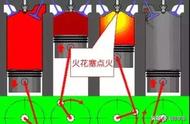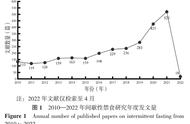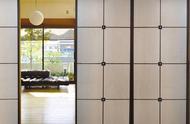
1. cry/ shout/ exclaim
Ⅰ. cry “叫、喊”,常指因痛、痛苦、恐惧等而叫喊,仅表示某种感情而不表达思想。它有时也指用言语高声叫喊,如表祈求。如:
① He cried with pain. 他痛得叫了起来。
② “Help! Help!” he cried. “救命啊!救命啊!”他高声地叫喊。
Ⅱ. shout “叫喊”,指表达思想的高声叫喊或说话。有时是用以表示高兴、痛、痛苦或惊恐等,有时是用于发出命令、提出警告或要别人注意。如:
① I shouted to him, but he was out of hearing. 我对他呼喊,但他听不到。
② He shouted with pain. 他大声叫痛。
Ⅲ. exclaim “叫喊”指因高兴、痛苦、愤怒、惊讶等而突然地、感情激烈地高声叫喊。如:
① “What!” he exclaimed “Are you leaving without me?”“什么?”他喊道,“你要丢下我离去吗?
②They exclaimed with one voice. 他们齐声呼喊。
2. cup/ glass
Ⅰ. cup “杯子”通常指带柄的瓷杯,用以喝茶、牛奶、咖啡或可乐等等。如:
① The cup stands on the table.杯子放在桌子上。
② Will you have another cup of tea? 你要再喝一杯茶吗?
Ⅱ. glass “杯子”用以饮酒、或喝等。如:
① The glass is broken to pieces. 这只玻璃杯打碎了。
② He drank two gasses of milk. 他喝了两杯牛奶。
3. dear/ expensive/ high/;cheap/low
Ⅰ. dear 表示“贵”的意思时和cheap相对,指索价过高。主语是物。如:
① It is too dear. 这太贵了。
② The flowers were not dear. 这些花我贵。
Ⅱ. expensive “昂贵的”,指超过物品的价值或购买者的购买力。主语是物。如:
① It is too expensive for me to buy. 这东西太贵了我买不起。
② This is an expensive hat. 这是一顶价钱昂贵的帽子。
Ⅲ. high 与low相对,主语是价格(the price), 如:
① The price of the pen is not low for him. 这支钢笔对于他来说不便宜。
4. decide/ determine/ make up one's mind
Ⅰ.decide着重指经过考虑、商谈或研究之后作出“决定”,“下决心”。结束踌躇、疑惑、争论等状况。后跟名词、代词、动词不定式或从句,可用于被动语态中。如:
① Nothing has been decided yet.什么都没有决定下来。
② They decided to accept the invetation. 他们决定接受邀请
Ⅱ.determine表示“决定、决心”指经过认真考虑后下定决心。与decide一般可换用。后接名词、代词动词不定式。如:
① We determined on an early start.我们决定尽早出发。
② He has determined to learn English. 他已下决心学英语。
③ We are determined to get the work done before May Day. 我们决心要在五一节前完成这项工作。
Ⅲ.make up ine’s mind “决定、决心”,是和犹豫不决等相对应的用语。意即:打定主意。如:
① He made up his mind to go there at once. 他决定立刻到那儿去。
② He has made up his mind to be a dotctor. 他决心当医生。
5. deep/ deeply
Ⅰ.作副词用时,都有“深深地”之意,但deep用于具体的深度,包括时间和空间。而deeply用于抽象的、比喻的意义;再者deeply可以修饰形容词和过去分词,deep 则不能。如:
① They lived deep in the sea.他们深潜海里。
② I’m deeply sory for your uncle’s death. 为你叔叔的去世我深表遗憾。
6. defend/ protect
Ⅰ. defend “保卫、保护、捍卫”指采取积极措施以抵御或击退外来的威胁或攻击。它还可以表示“为……辩护”。如:
① It is the duty of every citizen to defend his country.保卫祖国是每一个公民的职责。
② He defended his comrades from harm. 他保护同志使其不受伤害。
③ They defended the fundamental principles of Marxism-Leninism. 他们捍卫了马克思列宁主义的基本原则。
④ He made a long speech definding his ideas. 他发表长篇演说为他的见解辩护。
Ⅱ. protect “保护”指采取措施,使之不受伤害或损害。如:
① The government protects the people’s interests.政府保护人民的利益。
② He built a fence to protect his garden. 他围起了篱笆以保护园子。
7. department store/ shop/ store
Ⅰ. department store “百货公司”原是美国用法,现在英也用了。不过英也把百货公司叫stores.如:
① I’m going to the department store. 我要到百货公司去。
② I get most things at the stores. 大部分东西我是在百货公司买的。
[注]:在美国,杂货商店(铺)叫grocery 或drugstore.
Ⅱ. shop “商店、店铺”,在英国,零售商店一般都叫shop.如:
① The shop opens at eight o’clock. 商店八点钟开门。
② The shop sells embroideries.那家商店出售刺绣品。
Ⅲ. store“商店、店铺”,在美国,零售店一般叫store. 如:
① He keeps a store in New Youk. 他在纽约开了一个商店。
② The wares in that store are dear. 那家店里的东西很贵。
8. desire/ wish/ want/ hope/ expect
Ⅰ. desire 表“想、希望”等意。着重表强烈的愿望,热切的心情。如:
① I desired to see you. 我很想见见你。
② He desired success. 他渴望成功。
Ⅱ. wish 语气不如desire 强,且可以表示一种不能实现的愿望,(从句动词有虚拟语气形式);后接“不定式”或“代词/名词 不定式”结构。所表示的“希望”大体是可以实现的;此外,还可以接双宾语,表“祝愿”或表委婉的语气。如:
① I wish I could fly to the moon in a spaceship one day. 但愿有一天我能坐宇宙飞船飞向月球。
② I wish I were you.但愿我是你就好了。
③ We wish to visit Yanan. 我希望能参观延安。
④ We wish you to be happy. 我希望你幸福。
⑤ I wish you a long life. 祝你长寿。
⑥ I wish you success. 祝你成功。
⑦ We can begin to work at once now if you wish(不及物动词)要是你愿意,我们现在可以立刻开始工作。
Ⅲ. want “想”其搭配关系为:want to do sth. Or want sb to do sth. 比较口语化,没有wish那样正式。如:
She wants me to do with her.
Ⅳ. hope 表对愿望的实现抱有一定的信心。后接“不定式;that 从句。”但不能接 双宾语。
① I hope to be a doctor. 我希望当一名医生。
② I hope she will be well again. 我希望她会痊愈。
Ⅴ.expect “期待、盼望、预料”等,指对某一特定的事件的发生抱有颇大的信心。如:
① We are expecting a letter from her. 我们当时正期待着她的来信。
9. desk/ table
Ⅰ. Desk “课桌、书桌、写字台”指读书、写字或办公用的桌子。如:
There are fifty desks in the classroom. 教室里有50张课桌。
Ⅱ. table “桌子、台”,指供吃饭、游戏、工作或安放其他各种东西的桌子或台子。它的广义包括desk在内。如:
We all sat at the same table. 我们同桌吃饭。
10. develop/ developing/ developed
Ⅰ.develop既是及物动词,又是不及物动词,意为“发展”,“开发”。如:
The child is developing well. 这孩子发育很好。
Ⅱ.developing为现在分词,起形容词的作用,表示主动意义,意思是“发展中的”。如:
① China is a developing country. 中国是一个发展中国家。
Ⅲ.developed为过去分词,起形容词作用,表示被动含意,意思是“发达的”。如:
Japan ia a developed country. 日本是一个发达国家。
(资料来源于网络,仅用于教学教研分享之用,尊重原创和所有权)
,












